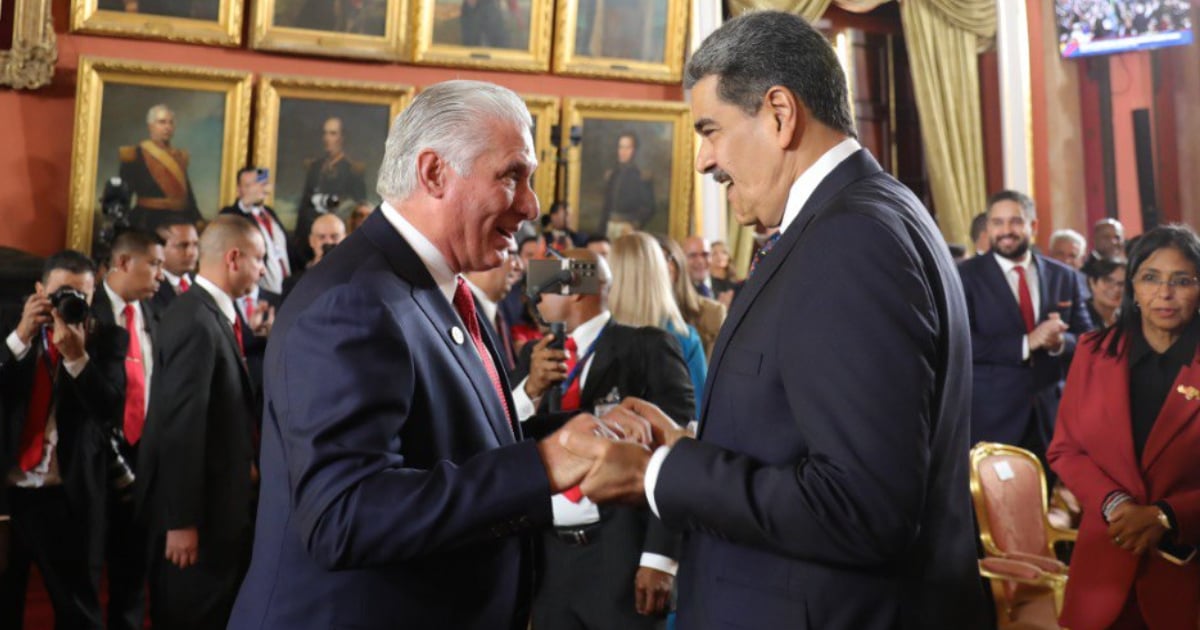
Related videos:
The United States increased the reward this Friday for information leading to the capture of Nicolás Maduro, President of Venezuela, and the influential Interior Minister Diosdado Cabello, from 15 to 25 million dollars for each.
This measure comes after Maduro's swearing-in at the National Assembly, controlled by chavismo, for the presidential term 2025-2031, amid growing accusations of crimes related to drug trafficking.
The increase in the reward is part of a new package of sanctions imposed by President Joe Biden's administration, which continues to pressure the Venezuelan regime, which on Friday ignored the will of the people.
The sanctions arise following the controversial inauguration of Maduro, which was labeled a "coup" by the opposition, which claims victory in the elections by Edmundo González Urrutia in the July 2024 elections.
In addition to the reward for Maduro, the U.S. government has offered 25 million dollars for information leading to the capture of Diosdado Cabello, and 15 million for the arrest of Vladimir Padrino, Minister of Defense.
The U.S. Department of the Treasury also imposed economic sanctions on eight high-ranking officials of the Venezuelan government, including the president of the state oil company PDVSA, Héctor Obregón Pérez, and the Minister of Transport, Ramón Celestino Velásquez, whom they accuse of being responsible for acts of repression.
Through a statement, the Biden Administration reiterated that it will take "additional measures" to restrict the income of Maduro and his allies, in addition to considering the embargo on Venezuelan assets abroad.
At the same time, the U.S. has decided to extend Temporary Protected Status (TPS) for thousands of Venezuelans residing in the country, allowing them to continue working and living in U.S. territory for an additional 18 months.
This new package of sanctions and rewards arrives at a time of growing tension, following Maduro's inauguration for his third consecutive term. The ceremony was met with strong opposition both in Venezuela and from the international community, which has questioned the legitimacy of the electoral process, marked by allegations of fraud and lack of transparency.
Maduro, who has been in power for over 20 years, defended his position by asserting that the power he holds comes from the Venezuelan people and not from foreign governments, especially the U.S. government.
The political situation in Venezuela remains a subject of international contention, as the country faces a severe economic, social, and political crisis.
Frequently Asked Questions About U.S. Sanctions and Rewards for Officials of the Venezuelan Regime
Why did the United States increase the reward for Nicolás Maduro?
The United States has increased the reward for Nicolás Maduro due to accusations of crimes related to drug trafficking and in an attempt to press the Venezuelan regime following Maduro's controversial inauguration for a new term, which has been deemed illegitimate by the opposition and several international actors.
What additional measures has the U.S. taken against the Maduro government?
In addition to the increase in rewards, the U.S. has imposed economic sanctions on several high-ranking officials of the Venezuelan government, including the president of PDVSA, the minister of Transportation, and other allies of Maduro, with the goal of restricting their income and applying pressure on the regime.
How has the international community responded to Nicolás Maduro's inauguration?
The international community has expressed strong opposition to Nicolás Maduro's inauguration for a new term, questioning the legitimacy of the electoral process and denouncing the lack of transparency and irregularities in the July 2024 elections.
What actions has the U.S. taken in support of Venezuelans within its territory?
In parallel to the sanctions, the U.S. has decided to extend Temporary Protected Status (TPS) for thousands of Venezuelans in the country, allowing them to work and reside legally for another 18 months, in an effort to support citizens affected by the crisis in Venezuela.
Filed under: